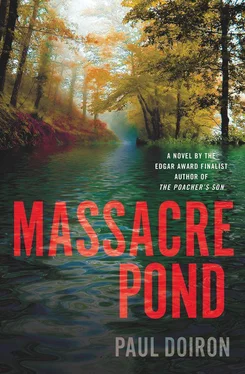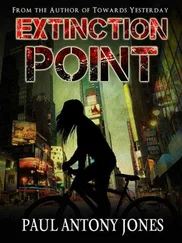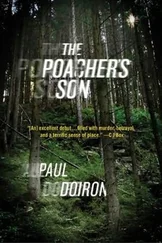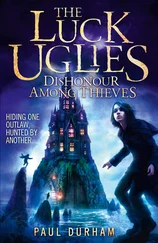Paul Doiron - Massacre Pond
Здесь есть возможность читать онлайн «Paul Doiron - Massacre Pond» весь текст электронной книги совершенно бесплатно (целиком полную версию без сокращений). В некоторых случаях можно слушать аудио, скачать через торрент в формате fb2 и присутствует краткое содержание. Год выпуска: 2013, ISBN: 2013, Издательство: Minotaur Books, Жанр: Криминальный детектив, на английском языке. Описание произведения, (предисловие) а так же отзывы посетителей доступны на портале библиотеки ЛибКат.
- Название:Massacre Pond
- Автор:
- Издательство:Minotaur Books
- Жанр:
- Год:2013
- ISBN:9781250033932
- Рейтинг книги:4 / 5. Голосов: 1
-
Избранное:Добавить в избранное
- Отзывы:
-
Ваша оценка:
- 80
- 1
- 2
- 3
- 4
- 5
Massacre Pond: краткое содержание, описание и аннотация
Предлагаем к чтению аннотацию, описание, краткое содержание или предисловие (зависит от того, что написал сам автор книги «Massacre Pond»). Если вы не нашли необходимую информацию о книге — напишите в комментариях, мы постараемся отыскать её.
Massacre Pond — читать онлайн бесплатно полную книгу (весь текст) целиком
Ниже представлен текст книги, разбитый по страницам. Система сохранения места последней прочитанной страницы, позволяет с удобством читать онлайн бесплатно книгу «Massacre Pond», без необходимости каждый раз заново искать на чём Вы остановились. Поставьте закладку, и сможете в любой момент перейти на страницу, на которой закончили чтение.
Интервал:
Закладка:
The idea hadn’t gone over well with my neighbors, many of whom were employed by the woods-products industry and didn’t know where to ride their ATVs or shoot their AR-15s now that “Queen Elizabeth” had cordoned off half of Washington County. Morse told them not to worry; she promised a sunny economic future in which they would sell goods and services to crowds of tourists eager to experience a brand-new wilderness within a day’s drive of Boston. Her de facto subjects greeted this promise with skepticism, to say the least.
I was doing my best to withhold judgment on the idea, but it wasn’t easy staying out of arguments. Elizabeth Morse was the number-one topic at every diner and bait shop I visited that fall.
The number-two topic was the weird October heat.
No one in Maine could remember an autumn this insufferable. Johnny-jump-ups were jumping up for the third time outside the Washington County courthouse, and the persistence of mosquitoes in the woods behind my cabin seemed less like an annoyance and more like an ominous disruption in the natural order of things. Frustrated moose hunters blamed the seventy-degree heat for the refusal of the big bulls to leave the coolness of the peat bogs and move to the upland clear-cuts, where they could be dispatched (illegally) from the backs of pickup trucks. Even the old cranks down at Day’s General Store muttered the words global warming without their usual sneers.
Every day, going on patrol in my shirtsleeves and orange hunting vest, I experienced a sense of temporal dislocation. The foliage was fading in the treetops, and yet the sun continued to blaze like a frying pan left too long on the stove. Sooner or later, I knew, we would pay a price for this never-ending Indian summer.
So when Billy Cronk called to say that he’d stumbled on something bad on the Morse property, I figured the bill might finally have come due.
“It’s bad, Mike,” he told me in a quavering voice I’d never heard from him before. “Wicked bad.”
But what I found on Betty Morse’s estate was more than bad. It was evil.
2
Billy wouldn’t get into details over the phone, but he said he’d meet me at Morse’s new gate-the one that blocked access to the south shore of Sixth Machias Lake.
My patrol truck was making a shrill noise that might have been a loose belt or a dying scream-I wasn’t sure which. The old GMC was covered with “warden pinstripes” from where bushes had scratched green paint from its sides, and it had a fist-size dent in the middle of the Department of Inland Fisheries and Wildlife logo on the door. I’d put in a request for a new vehicle over the summer but held out little hope of seeing a replacement, not while my own future continued to be in doubt.
For three years, my fellow wardens had been taking bets on my own longevity in the service. In the minds of my superiors, Warden Mike Bowditch was the human equivalent of a grenade with a pulled pin. How, they wondered, can anyone behave so self-destructively without ever actually destructing? Here they’d gone and exiled me to the easternmost county in the United States-a desolate outland where game wardens were hated and oxycodone abuse was epidemic-but still I refused to explode. Instead, I kept doing my job as if I were oblivious to the contempt in which I was held. I had decided that the only way for me ever to be happy was to be true to my own values. And while I can’t say I was the embodiment of joy, I was beginning to understand the emotional rewards that come from living in the moment and doing good work.
Billy had opened Betty Morse’s iron gate and was standing beside the new NO HUNTING sign, waiting for me to drive through. He was wearing blue jeans tucked into tall neoprene-sided boots, a Western-style belt with an actual tarantula embedded in the buckle, and a blue Henley pullover that showed off his impressive musculature when he swung the gate shut behind my pickup. The heavy metallic clang reminded me of past visits to the state prison and other hopeless places. I felt a growing sense of dread as I rolled down my window.
Glancing in the side mirror, I watched Billy stoop to reset the combination lock and then come striding up alongside the truck. He peered down at me, his eyes flat, his sharp cheekbones shining with perspiration.
“What’s going on, Billy?”
“The first one is up here a ways,” he said, pointing at the rust-colored road. There were no hardwoods in this part of the forest, only pines, firs, and hemlocks. Over the decades, the trees had shed their needles, forming a soft carpet for any vehicles that might pass beneath them. I saw Billy’s blue F250 parked in the shadow of the boughs.
“You want to ride with me?” I asked.
“It would be better if I went ahead.” His voice started as a rumble down around his spleen and was as intimidating as the rest of him. “We got some ground to cover, and I ain’t sure where we’re going to end up.”
I waited for him to start his pickup and then tagged along behind his trailer hitch a few miles, wondering what all the mystery was about. Billy had a flair for the dramatic-witness the tarantula belt and the heavy-metal hairstyle-but this seemed different: a reluctance, or even inability, to put what he’d discovered into words.
Eventually, the road emerged from beneath the evergreens and crossed a meadow overgrown at the edges with poplars, paper birches, and speckled alders. The road was powder-dry from baking in the sunlight, and Billy’s tires kicked up a cloud of dust so thick I almost ran into the back of his tail bed when he applied the brakes.
I watched him unfold himself from his Ford-no vehicle made offered enough headroom for my towering friend-and then I unbuckled my shoulder belt.
A dead moose lay in the ragweed ten feet from the road. It was a young bull, a little bigger than a Clydesdale, but with the long, knobby legs of a camel. It had a modest rack of antlers, five feet across or so, and a brownish red coat stuck all over with brambles and wisps of cattail fluff. Green flies buzzed loudly around its open mouth. Its tongue was hanging out like a gray inner organ it had half-expelled from its gut, and its drying eyeballs were coated with an abrasive layer of dust. At first glance, I couldn’t see any obvious wounds or dried blood on the carcass. Nor were there any of the telltale signs of the fatal brainworm that often afflicts moose in Maine.
“What do you think?” Billy asked.
I crossed my bare arms, slick with SPF-45. “I’m thinking someone shot it last week during the hunt but didn’t bring it down. It might have stumbled around for a few days-and wandered across the road onto Morse’s property-before it bled out or the wound got infected. It’s not unusual to find a gut-shot moose after the hunt.”
“That’s what I thought at first.”
I squinted to get a better look at the moose’s underbelly. “Or it could have gotten paunched by a bigger bull during the rut.”
“I thought of that, too.”
“But that’s not what happened, is it?”
“Nope.”
I crouched down beside the moose, scattering the winged insects that had come to lay their eggs in its mucous membranes. A faint odor-like crushed wet acorns-rose from its obscene tongue. I lifted one of the floppy ears and saw a cluster of blood-swollen ticks attached to the underside. During a bad year, like this one, a moose can play host to tens of thousands of parasitic ticks, not to mention the mosquitoes and other biting insects-no-see-ums, black flies, deerflies, and moose flies-that are its constant, lifelong companions. For the thousandth time, I reflected on how much it must suck to be a moose.
“Well, there’s no smell of putrescence,” I said, “and there are still ticks feeding on the blood, which means it hasn’t been dead long enough for the blood to totally dry up. The birds and coyotes haven’t been at it yet, either.”
Читать дальшеИнтервал:
Закладка:
Похожие книги на «Massacre Pond»
Представляем Вашему вниманию похожие книги на «Massacre Pond» списком для выбора. Мы отобрали схожую по названию и смыслу литературу в надежде предоставить читателям больше вариантов отыскать новые, интересные, ещё непрочитанные произведения.
Обсуждение, отзывы о книге «Massacre Pond» и просто собственные мнения читателей. Оставьте ваши комментарии, напишите, что Вы думаете о произведении, его смысле или главных героях. Укажите что конкретно понравилось, а что нет, и почему Вы так считаете.












